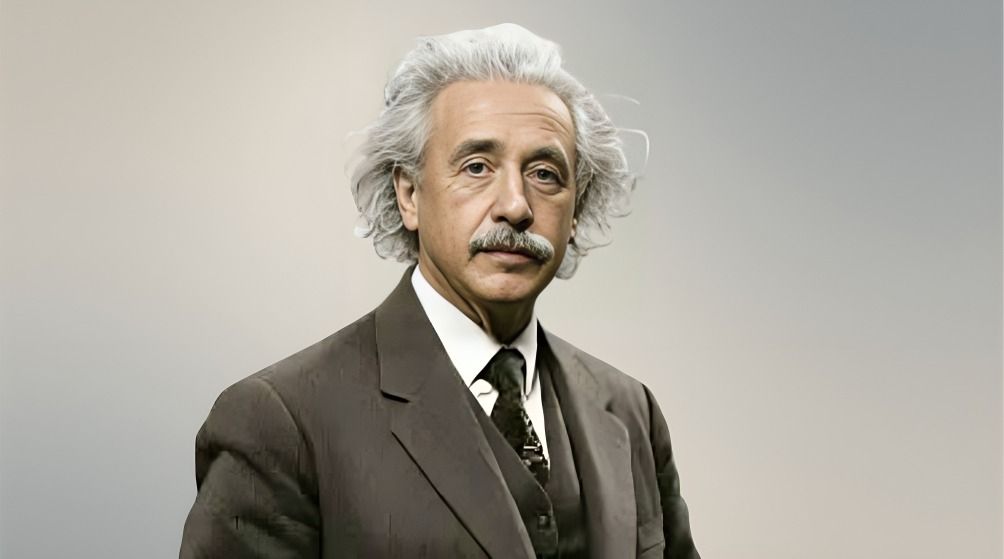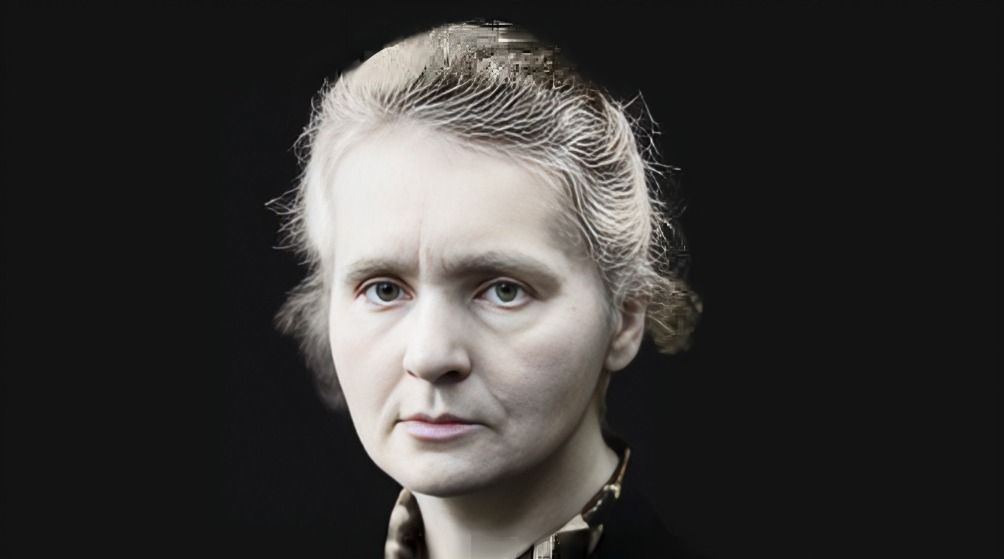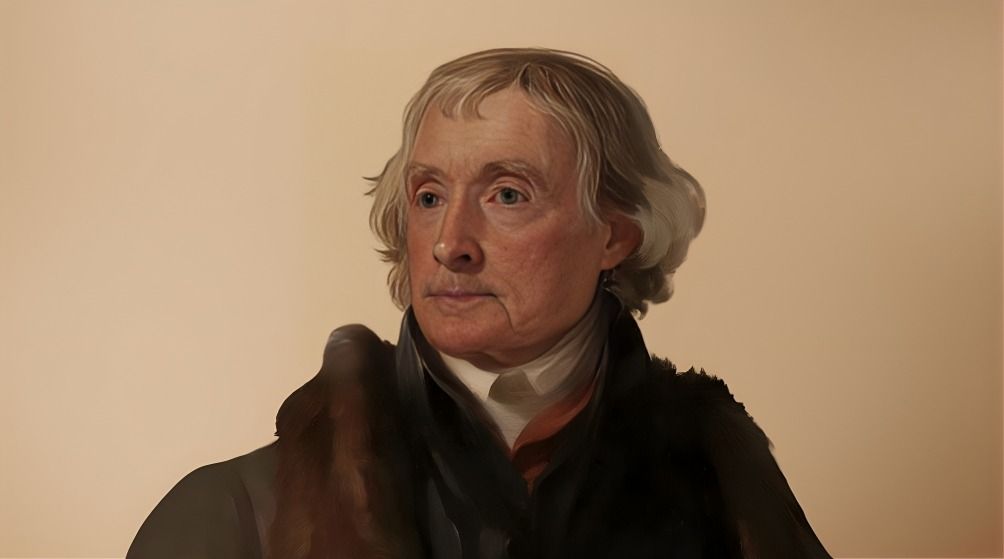
“
Captivating Facts About Thomas Jefferson shed light on one of America's most influential Founding Fathers. Jefferson’s life was filled with accomplishments, controversies, and a deep commitment to the ideals of liberty and equality. In this blog, we will explore 20 captivating facts about Thomas Jefferson, diving into his personal, political, and intellectual journey. From drafting the Declaration of Independence to his presidency, Jefferson's influence on the nation's early development is undeniable. Yet, beyond his public life, Jefferson was also a passionate inventor, a farmer, and a complex figure with personal beliefs that sparked debate. Join us as we unravel the stories behind Captivating Facts About Thomas Jefferson, offering insight into the mind of a man who helped shape the future of America. Whether you’re interested in his political legacy or personal pursuits, these 20 facts will provide a deeper understanding of Jefferson’s fascinating life.1
”
Thomas Jefferson, as the principal author of the Declaration of Independence, crafted the inspiring words that fueled America’s quest for freedom and laid the foundation for modern democracy.1
Jefferson spoke five languages fluently: English, Latin, Greek, French, and Italian. His linguistic abilities reflect his lifelong passion for learning and his commitment to becoming a well-rounded scholar.2
Jefferson was a talented violinist who practiced daily for hours. Music brought him immense joy, and he often used it to entertain guests and relieve stress throughout his life.3
Jefferson co-founded the Democratic-Republican Party, promoting states’ rights and limited federal power, countering Federalist centralization, and shaping American political culture for decades.4
Monticello, Jefferson’s self-designed home, reflects his architectural knowledge and love for classical European styles. Its unique layout showcases Jefferson's innovative thinking and his deep appreciation for art and architecture.5

A passionate educator, Jefferson founded the University of Virginia as a secular institution, one of America’s first, believing strongly in accessible education as essential for democracy's future.
Jefferson amassed thousands of books over his lifetime, forming one of the largest libraries in America. His collection served as the foundational core of the modern Library of Congress.6
As president, Jefferson negotiated the Louisiana Purchase, doubling America’s size and shaping its destiny. The acquisition opened vast lands for settlement, enhancing U.S. influence across North America.7
Jefferson commissioned the Lewis and Clark Expedition to explore America’s western territories, vastly enhancing geographical knowledge, opening pathways for settlement, and advancing scientific discovery across the continent.8
An avid botanist, Jefferson cultivated over 300 vegetables and herbs at Monticello. His extensive gardens reflected his love of agriculture and experimental approaches to food cultivation and self-sufficiency.9
Jefferson invented a "polygraph" copying machine, allowing him to duplicate letters easily. This device helped him maintain extensive correspondence, preserving copies of his letters for historical records.10
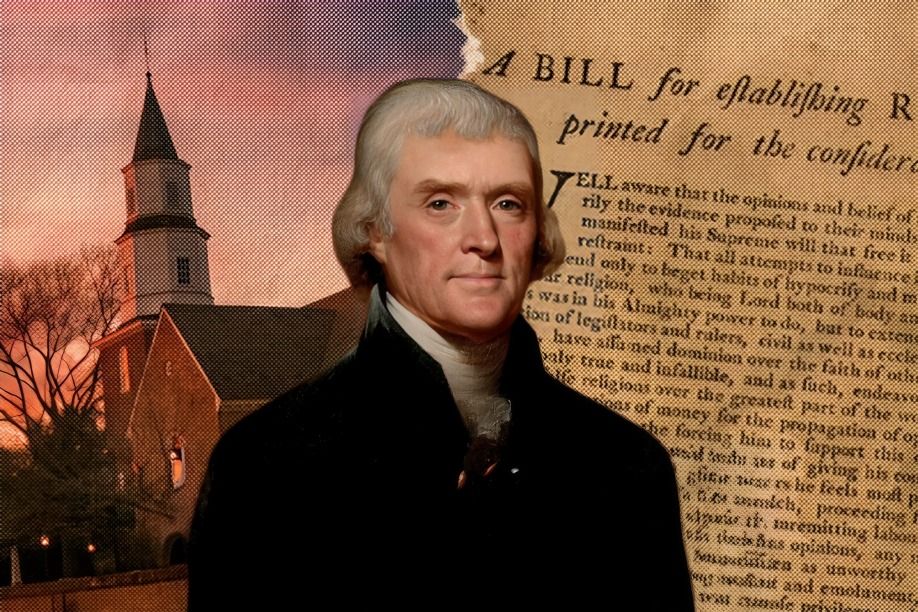
A strong advocate for religious freedom, Jefferson authored the Virginia Statute for Religious Freedom, which became a guiding model for America's separation of church and state principles.
Jefferson and John Adams were once close friends who became political rivals but later reconciled. Coincidentally, they both passed away on July 4, 1826, on America’s 50th Independence Day.11
Jefferson opposed patents, believing knowledge and innovation should benefit society freely, reflecting his progressive ideals on shared learning and public welfare over individual ownership.12
Jefferson loved ice cream and frequently served it at the White House, introducing this now-favorite dessert to America and adding it to early American culinary culture.13
Jefferson kept two grizzly bear cubs briefly as pets, gifted by Lewis and Clark. His fascination with animals and nature reflected his curiosity about America’s frontier wildlife and ecosystems.14
Jefferson had a pet mockingbird named "Dick," who freely roamed the White House and often perched on his shoulder. This affectionate bond showed Jefferson’s love of birds and animals.15
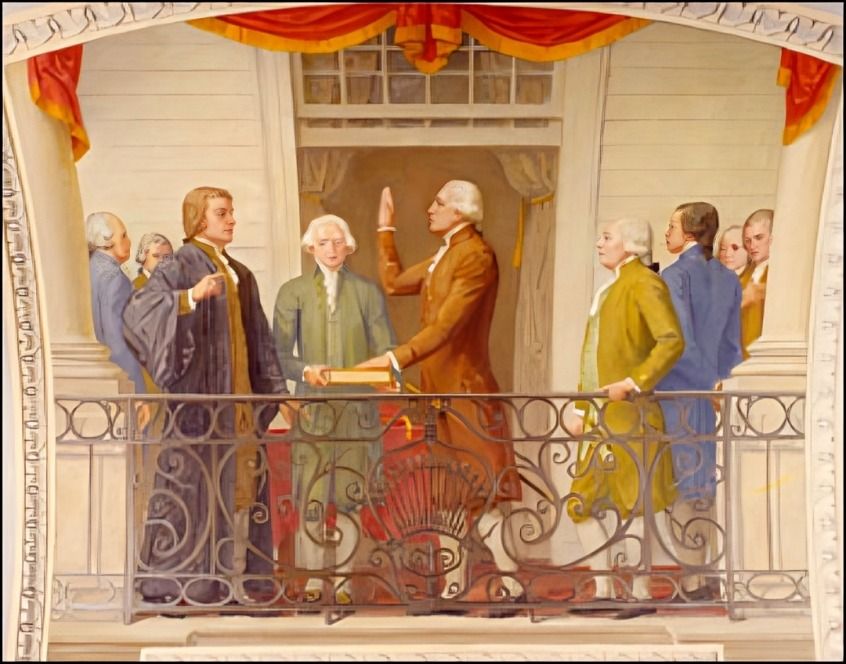
Jefferson was the first president inaugurated in Washington, D.C., setting a precedent for future leaders and marking the capital's establishment as the symbolic center of American democracy.
Jefferson designed his gravestone, listing the achievements he valued most: authoring the Declaration of Independence, drafting the Virginia Statute for Religious Freedom, and founding the University of Virginia, omitting his presidency.16
Believing in a “wall of separation” between church and state, Jefferson influenced America’s religious freedom policies, helping ensure government neutrality in religious matters for generations to come.17

